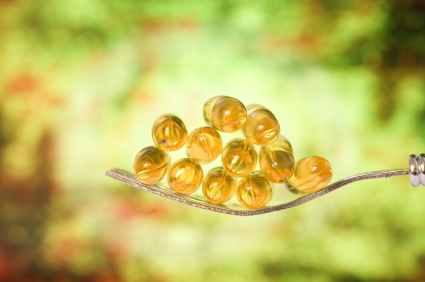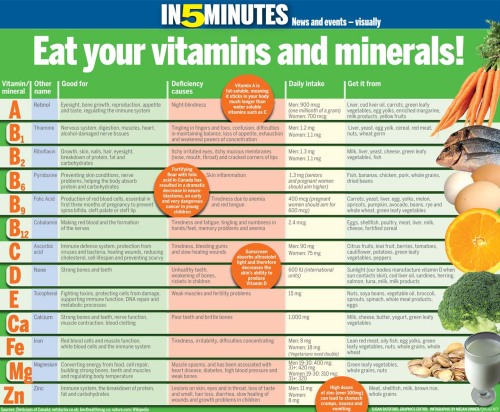A few days ago, I was chatting with a friend and she mentioned that she was concerned that she was developing arthritis in her hips. I asked her if was taking an Omega 3 supplement (excellent for inflammation), one thing led to another and soon we were examining her collection of vitamins, minerals and supplements at the kitchen table.
Now, I don’t know if this is a sign of the times, or just a factor of getting a little older, but this scene is not uncommon in my life. I can’t count the number of times I get to talking about nutrition with my friends and they bring out the arsenal of “little pills” to demonstrate how seriously they take their health. And I love that they take their health seriously. I want them to be around forever, because frankly, I’m accustomed to them. I don’t want to have to go out and make new friends. I’m lazy that way.
But here’s my concern. I have noticed that a lot of people regard their bottles of supplements as a kind of “magic bullet” that means they can carry on with all the bad nutrition and lifestyle habits that brought them to the health food store in the first place. They continue to skip meals, eat fast food, ignore the gym, and stay up too late but because they took ten different supplements before bed, they feel virtuous and healthy.
And when I ask why, for example, they are taking a B12 or an iron supplement, they often don’t have a great answer. “I read about it in the paper,” or “I saw it on Dr. Oz,” just isn’t a good reason and here’s why: We are all biochemically unique.In other words, what’s good for one person, may not be what the next person needs. Or maybe they do, but in different amounts. If you do not have a medically diagnosed deficiency or condition that requires extra amounts of these supplements, you probably shouldn’t be taking them!
There’s more to the story too. We were intended to get our nutrients from the foods that we eat. When we eat fresh fruits, vegetables, whole grains, nuts, seeds, legumes and animal products we are consuming a variety of vitamins, minerals, and phytonutrients that are miraculously packaged in a synergistic way that helps our body to use them most effectively. For example, nuts like almonds contain calcium and magnesium which both work to help the other be absorbed. When we take calcium or magnesium supplements they have been isolated from the other nutrients that help them work. Further, many of these chemically derived supplements are not structurally or chemically identical to the natural form that occurs in whole foods and our bodies may not recognize them. Which means you won’t be able to break them down or absorb them at all. Which means you’re wasting a lot of hard earned money!
There is also a very compelling theory that taking vitamins and minerals in supplement form, isolated from the naturally occurring synergistic nutrients in whole foods, sets your body up to crave those missing nutrients. So, if you take a vitamin A supplement, for example, your body spends the rest of the day looking for the “rest of the carrot.” Which may result in feeling unsatisfied, constant snacking, and over eating. And we all know what that means. Wouldn’t it be simpler and more satisfying to just eat the carrot in the first place?!?
Things can get even more complicated. Not only are we taking individual nutrients out of the context of the natural foods in which they originally occurred, we may be combining them with other nutrients that act against them! My friend was shocked to learn that her iron supplement was impeding the absorption of her vitamin C supplement because she was taking them at the same time. (As a general rule of thumb, take your vitamins in the morning and your minerals at night to avoid this kind of thing. Plus, vitamins are slightly energizing and minerals are relaxing).
Don’t get me wrong. There are times when supplementation is absolutely the right thing for an individual. But it shouldn’t be undertaken lightly, uninformed, or with a “scattershot” approach. A Doctor, Naturopath, or Nutritionist can help you to determine if you are experiencing deficiencies and instruct you on the best approach to supplementation. But in the meantime, it’s way more fun to eat your vitamins and minerals!
Click this link to see this chart full sized:
http://cnews.canoe.ca/CNEWS/Features/2012/06/19/1280-Vitamins.jpg
In conclusion, I’d like to end this quote with a popular quote from someone you know and love: your very own Mother!
“Eat your fruits and vegetables – they’re good for you!”




To be completely fair, I can’t even claim to a)take them regularly or b) mean for them to be the answer to all my prayers. I bought the Centrum on the advice of my GP, mostly to ensure I’m getting enough iron, and the Omega 3 and the other really good ones were given to me in a Christmas “health pack”. A pretty good present, I’d say.
Excellent info, and I’ll do my best to be more diligent about taking what I have, but as an extra or for balance when all’s not perfect food-wise.
Thanks,
V
Sorry Veronica! I used your name simply for the alliterative effect! I didn’t mean to imply that you specifically were guilty of anything. Our conversation was just the kick start to my thoughts on vitamins! I officially would like everyone to know that Veronica is an outstanding woman who eats well, and takes excellent care of herself!
I always take Magnesium supplements because it helps with my bruxism. Magnesium can really relax the tensed muscles..;,,’
Hope This Helps! http://www.healthmedicinelab.com/wheat-allergy-symptoms/
Thanks for the tip about Magnesium! For those unfamiliar with the term, “bruxism” refers to teeth grinding which can occur when you clench your jaw too tightly. Magnesium helps to relax muscles and can be found naturally in nuts, seeds, and dark leafy greens.
Complications resulting from magnesium deficiency are not commonly seen. However, there is concern that most people do not have adequate supplies of magnesium stored in their bodies to protect them against immune system problems and cardiovascular disease. The best way to ensure that your body has the magnesium you need is to eat a diet high in magnesium-rich foods such as vegetables, nuts, legumes and whole grains. If your diet is lacking in magnesium you may need to take a daily supplement. :
Our personal homepage
<,http://www.foodsupplementcenter.com/milk-thistle-for-dogs/